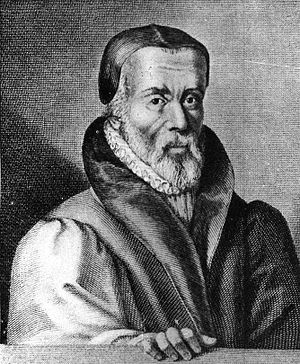
On Wednesday just gone (6 October), we celebrated William Tyndale at the Mass. Thinking on him since, I have come to see that he is grossly under-appreciated and forgotten.
William Tyndale was a son of Gloucestershire, born around the end of the 15th century. He was educated at Oxford and Cambridge, just missing the great humanist scholar Erasmus at Cambridge. Tyndale was a gifted linguist, becoming fluent in eight languages, and was excited by the work of Erasmus in editing the Greek New Testament from the best available texts of the time.
After leaving Cambridge, as a chaplain, Tyndale expressed his desire to render the Scriptures in English and his frustration with a church that forbade such a translation. In one memorable debate, an arch-conservative cleric said to Tyndale, ‘We had better be without God’s laws than the Pope’s’, to which he responded, ‘I defy the Pope, and all his laws; and if God spares my life, ere many years, I will cause the boy that driveth the plow to know more of the Scriptures than thou dost!’.





 During Holy Week, I had a couple of episcopal moments. On Palm Sunday, six bishops signed a
During Holy Week, I had a couple of episcopal moments. On Palm Sunday, six bishops signed a  Ad fontes is a Latin phrase meaning ‘to the sources’, a favourite motto of Renaissance humanism. I am particularly thinking of Erasmus of Rotterdam with this phrase, recalling his invaluable biblical scholarship. Renaissance humanism both laid the groundwork for the Reformation and re-engaged with the writers of the early church.
Ad fontes is a Latin phrase meaning ‘to the sources’, a favourite motto of Renaissance humanism. I am particularly thinking of Erasmus of Rotterdam with this phrase, recalling his invaluable biblical scholarship. Renaissance humanism both laid the groundwork for the Reformation and re-engaged with the writers of the early church.